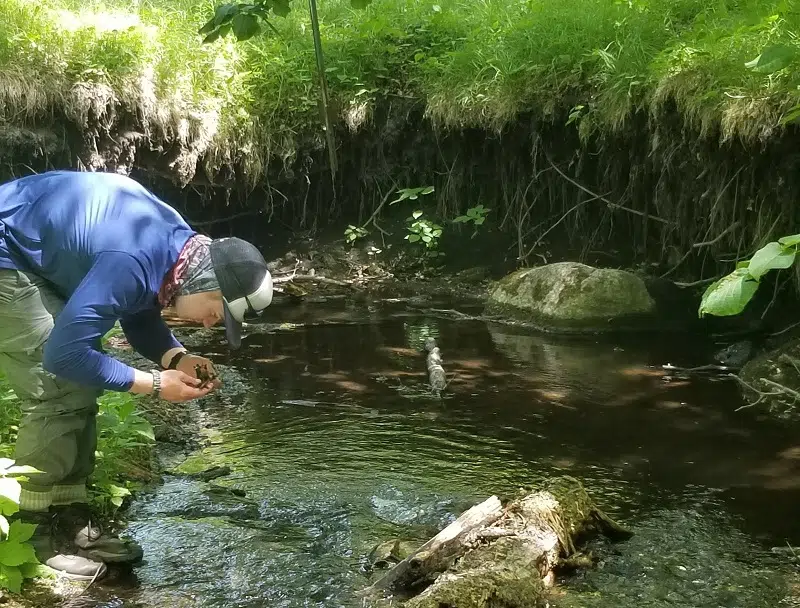The South Dakota Discovery Center (SDDC) was awarded a National Geographic Society Meridian Project Grant to engage educators in making observations that can be used for research in North and South America. Led by Anne Lewis, SDDC Programs and Operations Director, the project, MacroBlitz, teaches participating educators the techniques of noting and recording their experiences with aquatic macroinvertebrates, small, water dwelling organisms, via iNaturalist, an online platform that is used by professional and citizen scientists around the world to record observations of plants and animals.
“The MacroBlitz project is a culmination of Anne’s previous work,” says Dr. Rhea Waldman, SDDC executive director. “We are thrilled for the opportunities this grant and the international collaboration brings to our organization and our community.”
MacroBlitz builds upon SDDC professional development and citizen science programs developed by Lewis over the past few years. Going live in the summer of 2024, the next twelve months will be spent on planning and content creation. The project team is made of National Geographic Explorers from Chile, Canada, Mexico, and the US.
Two members are scientists that study aquatic macroinvertebrates. Dr. Isai Madriz, based in Chile, works to make observations of macroinvertebrates that live in Patagonia, as many are unknown to science, and it is important to document them before their populations are impacted by climate change. Dr. Dalal Hanna does research on macroinvertebrates that live in streams of forested areas in Canada, studying the effects of forestry on freshwater systems as macroinvertebrates are sensitive to the ecological health of their environment.
“Aquatic macroinvertebrates are key to understanding the state of our ecosystems, along with being a gateway to wonder,” says Lewis. “These small critters live in streams and ponds as larvae, and many of them grow up to be the bugs we see flying around on a summer night. It’s fascinating to see where species like damselflies, dragonflies and mayflies come from and to consider their big impact on our environment.”
The final team members focus on how research is shared. Carlos Velazco leads the iNaturalist group in Mexico and will create English and Spanish language educational resources for MacroBlitz. Peg Keiner, an award-winning educator and video storyteller from Chicago, will create “Sizzle videos,” short promotional segments, to engage educators and their students.
According to Lewis, taking photos of these “critters” is fun and educational, and adding them to iNaturalist contributes to science. “When you put an observation on iNaturalist, you are posting not just the organism but information about where and when you encountered it.” This information is invaluable to scientists who look for patterns and relationships between macroinvertebrates and their environments. Observations that are reviewed by multiple members of iNaturalist go on to be added to the Global Biodiversity Index Facility, an internationally accessible database used by biodiversity researchers.

Dragonfly nymph.
Photos credit: Anne Lewis.

Nick Bachand, a South Dakota Master Naturalist, examines macroinvertebrates at Sica Hollow State Park.
Photos credit: Anne Lewis.







Comments